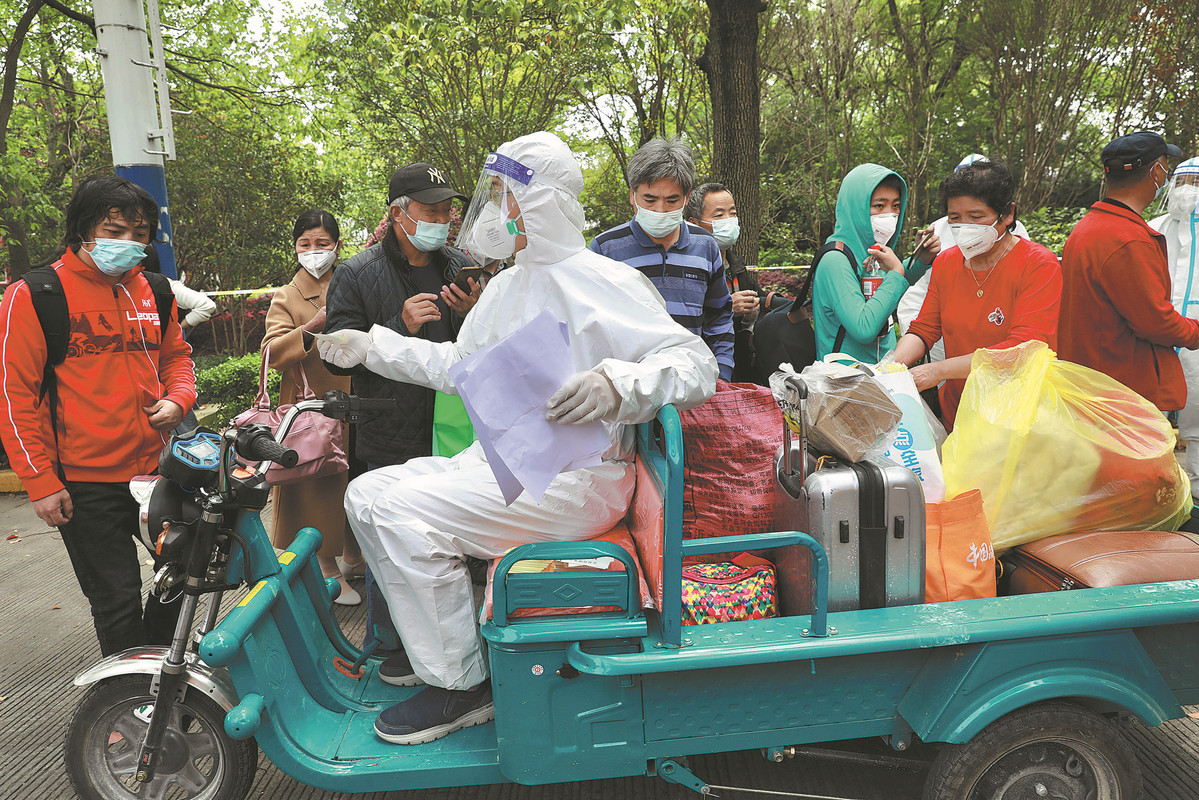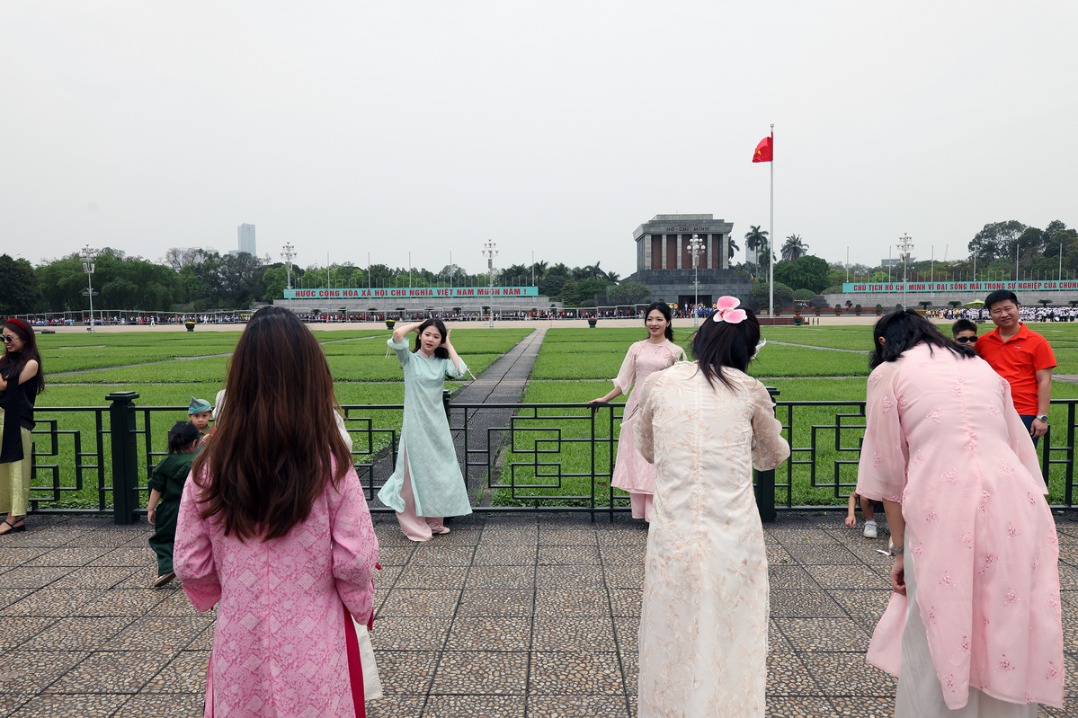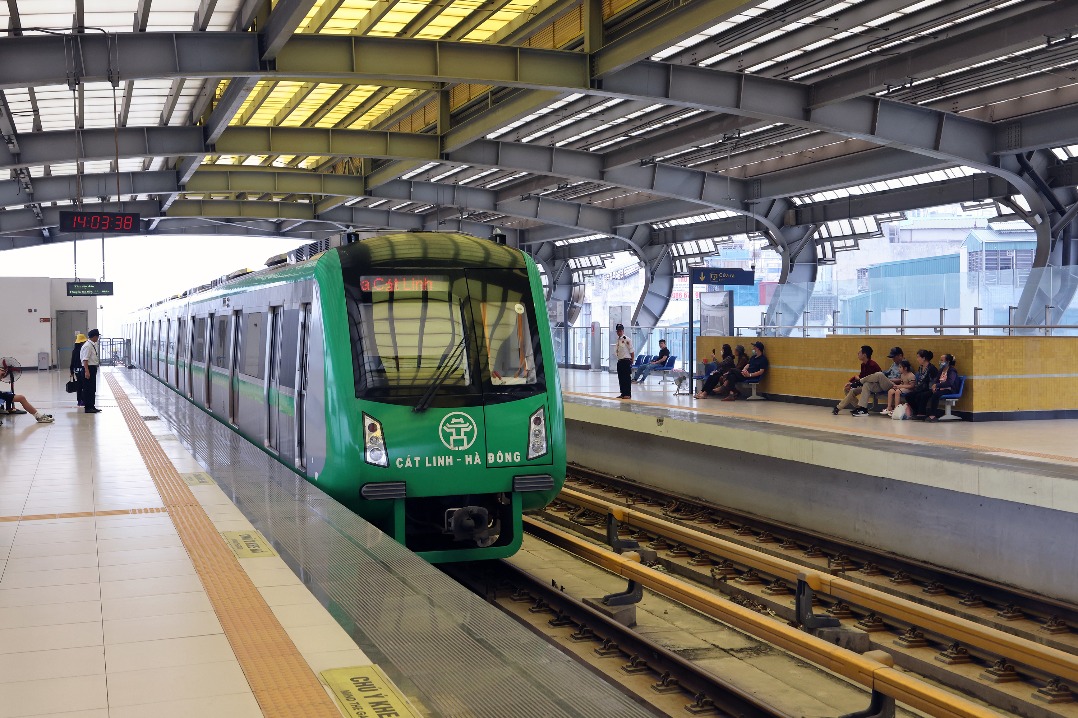New measures help villagers cope with COVID-19


Mobile stations
While relocating residents, the town's anti-epidemic team also began optimizing the way in which nucleic acid test samples were transported through urban villages.
On Sunday, volunteers used motorized tricycles in Lianqin to collect the samples, with medical workers driving to each household to take them.
Mai Lizhen, a Shanghai native who lives in Lianqin, welcomed the change. She said that previously when residents returned home from quarantine sites, they were asked to line up in a playground in the village to wait for nucleic acid tests, which made it easier for large numbers of people to gather.
"But since we've returned, we've been told to stay home and provide the samples one by one," she said. "In other words, the samples are collected at our doorsteps. This is safer and more orderly."
Motorized tricycles have also been used to collect samples in Yangqiao village, which is about a 10-minute drive from Lianqin.
Ji Ling, Party chief of Yangqiao, said: "We used to have one site for our residents to provide samples together, but we no longer set up a mass sampling site, as it doesn't suit the current situation. Instead, we conduct nucleic acid testing at each resident's door."























